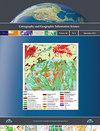Evaluating individual cartographic skills using mental sketches
IF 2.4
3区 地球科学
Q1 GEOGRAPHY
Cartography and Geographic Information Science
Pub Date : 2023-02-23
DOI:10.1080/15230406.2023.2176929
引用次数: 0
Abstract
ABSTRACT The paper deals with a problem of assessing of individual progress of students’ cartographic skills. For teacher it is important to evaluate it not only in a form of tests and semester works, but also in a less formal, score-oriented manner. The author uses mental sketches to observe results of a teaching process. The research is based on previously described author’s method with modification to trace individual, anonymized changes. The identical cartographic survey (map drawing task) was conducted and repeated among students five times during the entire study cycle. Results were analyzed with cartographic methodology in mind, to assess the skills of students, their progress and used methods of presentation. Students’ approach to using point, line and areal features were tested as well as design abilities in case of symbols. Information on progress and skills were used not only to observe statistical changes. The outcomes were applied in a process of evaluating the teaching effectiveness. The survey was conducted in a relation to real courses, hence the results are of great value in increasing the quality of studies and teaching methods. Some of ideas have already been introduced in cartography and GIS classes taught by the author. Key policy highlights Sketches allow assessing of different aspects of spatial knowledge and skills. Sketches could be applied as an element of knowledge evaluation and to trace individual progress in anonymous way without being oriented on students’ grades. Proposed model gives a teacher information on quality and efficiency of teaching. It can be applied to update map-making courses content. The approach can be used in other, drawing-based, courses.使用心理草图评估个人制图技能
摘要本文讨论了一个评估学生制图技能个体进步的问题。对于教师来说,重要的是不仅要以测试和学期作业的形式来评估它,还要以一种不那么正式的、以分数为导向的方式来评估它。作者使用心理素描来观察教学过程的结果。这项研究基于之前描述的作者的方法,并对其进行了修改,以追踪个人的匿名变化。在整个学习周期中,学生们进行了五次相同的制图调查(地图绘制任务)。对结果进行了分析,并考虑到制图方法,以评估学生的技能、他们的进步和使用的演示方法。测试了学生使用点、线和面特征的方法,以及在符号的情况下的设计能力。关于进展和技能的信息不仅用于观察统计变化。这些结果被应用于评估教学效果的过程中。这项调查是根据实际课程进行的,因此其结果对提高学习质量和教学方法具有重要价值。作者在制图和地理信息系统课程中已经介绍了一些想法。关键政策亮点草图允许评估空间知识和技能的不同方面。素描可以作为知识评估的一个元素,以匿名的方式追踪个人的进步,而不以学生的成绩为导向。所提出的模型为教师提供了关于教学质量和效率的信息。它可以应用于地图制作课程内容的更新。这种方法可以用于其他基于绘图的课程。
本文章由计算机程序翻译,如有差异,请以英文原文为准。
求助全文
约1分钟内获得全文
求助全文
来源期刊
CiteScore
5.20
自引率
20.00%
发文量
23
期刊介绍:
Cartography and Geographic Information Science (CaGIS) is the official publication of the Cartography and Geographic Information Society (CaGIS), a member organization of the American Congress on Surveying and Mapping (ACSM). The Cartography and Geographic Information Society supports research, education, and practices that improve the understanding, creation, analysis, and use of maps and geographic information. The society serves as a forum for the exchange of original concepts, techniques, approaches, and experiences by those who design, implement, and use geospatial technologies through the publication of authoritative articles and international papers.

 求助内容:
求助内容: 应助结果提醒方式:
应助结果提醒方式:


